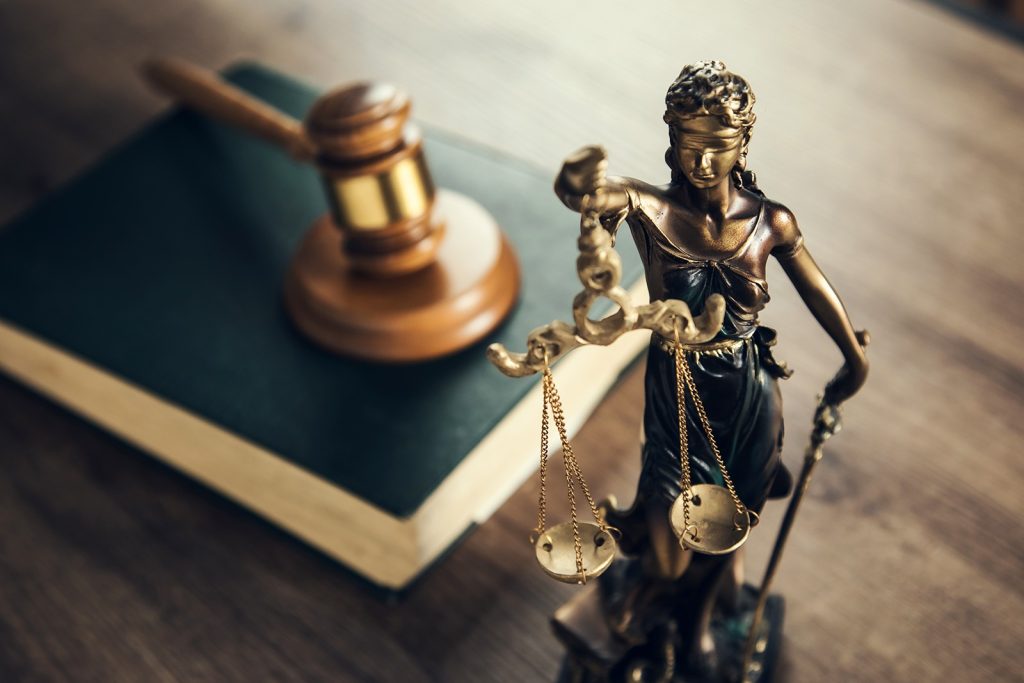
Law and justice are fundamental pillars of society. They govern how we interact with one another and ensure that everyone is treated fairly and equally. However, the legal system is often complex and difficult to navigate, leading to a lack of access to justice for many. In this article, we’ll explore the importance of law and justice, how the legal system works, and what can be done to improve access to justice for all.
“Equal justice under law is not merely a caption on the facade of the Supreme Court building, it is perhaps the most inspiring ideal of our society.”
Supreme Court Justice Lewis F. Powell Jr.
The Importance of Law and Justice
Law and justice provide the framework for a peaceful and orderly society. Laws set out the rules that govern our behavior, while the justice system ensures that those rules are enforced and that those who break them are held accountable. The legal system also provides a means for resolving disputes and seeking redress for wrongs that have been done.
Without law and justice, society would descend into chaos. People would be free to act as they please, without regard for the consequences of their actions. There would be no way to resolve disputes or seek justice when wrongs have been done. The rule of law ensures that everyone is subject to the same laws and that no one is above the law. It is a cornerstone of democracy and a fundamental human right.

Civil law deals with disputes between individuals, organizations, or companies. It covers a wide range of issues, including contract disputes, property disputes, and personal injury claims. Civil cases are usually heard in a civil court, where a judge will hear the evidence and make a ruling based on the law and the facts of the case.
- Individuals
- Organizations
- Companies
Criminal law, on the other hand, deals with crimes committed against the state. It covers a wide range of offenses, from minor offenses like traffic violations to more serious crimes like murder and assault. Criminal cases are usually heard in a criminal court, where a judge or a jury will hear the evidence and make a ruling based on the law and the facts of the case.
How the Legal System Works
The legal system can be complex and difficult to navigate, especially for those who are not familiar with it. It is divided into two main branches: civil law and criminal law.

Despite the importance of law and justice, many people lack access to the legal system. This is often due to a lack of resources, including money and legal representation. It can also be due to a lack of knowledge about the legal system and how it works.
Improving Access to Justice
Despite the importance of law and justice, many people lack access to the legal system. This is often due to a lack of resources, including money and legal representation. It can also be due to a lack of knowledge about the legal system and how it works.
There are many ways that access to justice can be improved. One way is through legal aid programs, which provide free or low-cost legal services to those who cannot afford them. Another way is through pro bono work, where lawyers provide their services for free or at a reduced cost.
Education is also important in improving access to justice. By educating people about the legal system and their rights, they are better equipped to navigate the system and seek justice when they need it.



Law and justice are fundamental to a peaceful and orderly society. They provide the framework for how we interact with one another and ensure that everyone is treated fairly and equally. However, the legal system can be complex and difficult to navigate, leading to a lack of access to justice for many. By improving access to justice through legal aid programs, pro bono work, and education, we can ensure that everyone has access to the legal system and that justice is served.
Law and justice are essential components of any functioning society. The law sets out the rules and standards that govern our behavior, while the justice system ensures that those rules are enforced and that those who break them are held accountable. Without these institutions, society would be chaotic and unstable.

The legal system can be complex and difficult to navigate, especially for those who lack the resources or knowledge to do so. Improving access to justice is a crucial component of ensuring that everyone has equal protection under the law. This can be achieved through legal aid programs, pro bono work, and education.
Ultimately, law and justice are the foundation of a free and democratic society. By upholding the rule of law and ensuring that everyone has access to justice, we can create a fair and equitable society for all.
One of the key principles of the justice system is the presumption of innocence, which means that individuals are innocent until proven guilty. This principle is crucial for ensuring that individuals are not wrongly convicted and that the justice system operates fairly and impartially.
However, the justice system is not perfect, and there are instances where it fails to deliver justice. In these cases, it is important to continue working towards improving the system and ensuring that it is fair for everyone.
In conclusion, law and justice are fundamental to a functioning society, and we must strive to ensure that they are accessible and fair for all. Only by upholding these principles can we create a just and equitable world.

Cassie Carleton
Nullam fringilla vitae ligula nec mattis. Suspendisse malesuada porttitor erat, vitae hendrerit ex venenatis et. Sed faucibus rhoncus sapien nec fringilla.